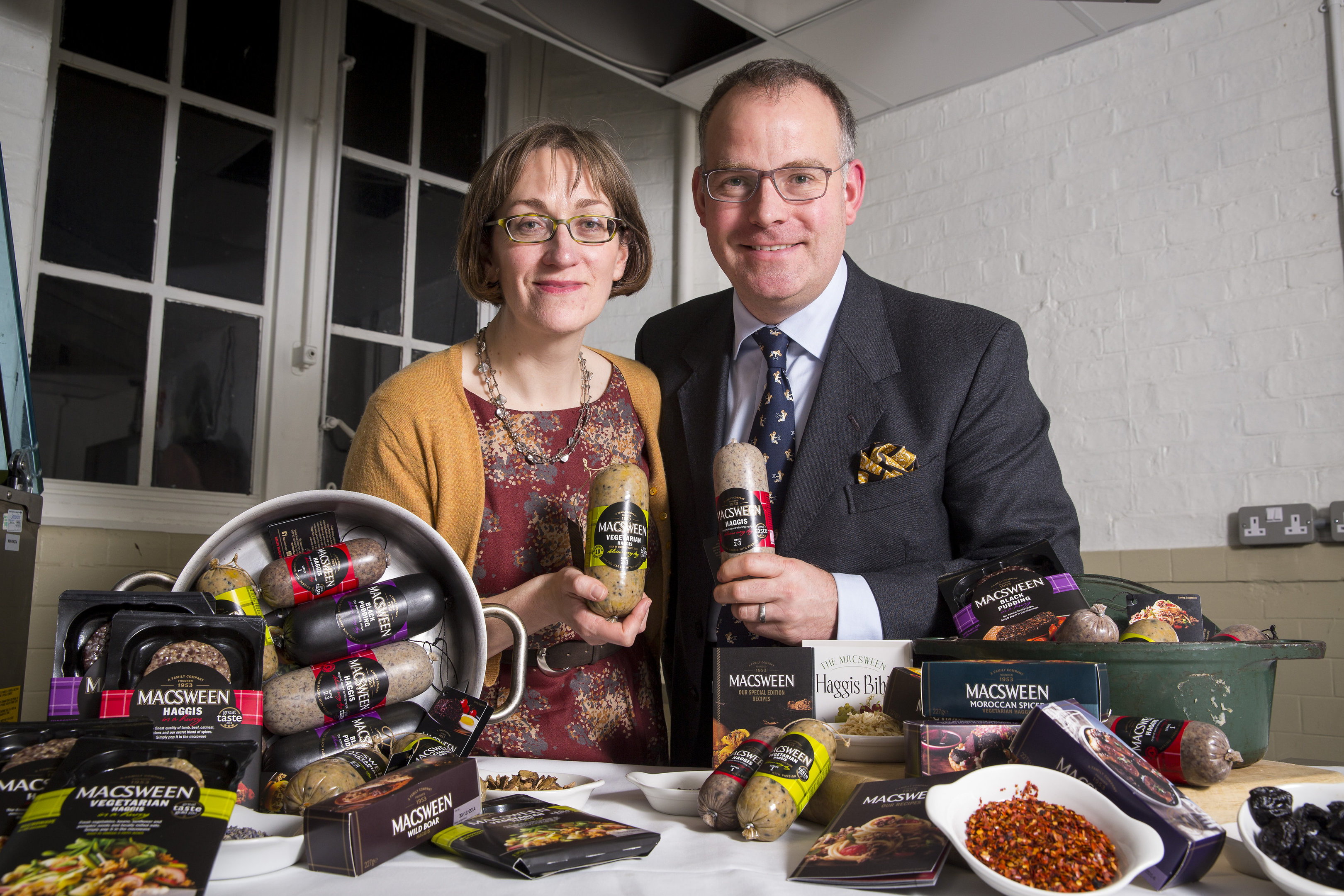The matriarch of Scotland’s most successful haggis producing dynasty will be visiting Aberdeen this month, where she will present an informative address to the great chieftain o’ the puddin-race.
Jo Macsween, managing director of Macsween of Edinburgh, has been invited to host a talk for Aberdeen University’s Elphinstone Institute.
Ms Macsween, who recently won the 2015 Female Director Award from Institute of Directors Scotland, will be discussing the history of the humble haggis and its culinary capabilities and revealing how her company celebrates Scotland’s national dish at an international level.
She said she was looking forward to setting the record straight on a number of counts.
“The tourist industry has promoted a number of myths about the haggis, with kitschy postcards conveying haggis as a beastie, or an animal or all sorts of things,” she said.
“That – and when visitors to Scotland have their taxi drivers saying ‘look out the window, you just missed that wild haggis there’ – creates a bit of trepidation for people that have never tried it.
“In reality haggis is a sophisticated foodstuff. But it’s got this sort of image problem because it’s the only foodstuff that has the word ‘the’ in front of it, so right away it seems like more of a thing than a food.
“Haggis is actually a great example of Scottish charcuterie and we should be proud of it, it’s so versatile, and for me it’s the quickest, tastiest way of making spaghetti bolognese, and you can’t go wrong with haggis nachos.”
And just as Scotland’s identity is changing at the moment, she said the place of the country’s national dish was also moving on.
“Haggis isn’t just something that you eat on Burn’s night anymore, it’s fast becoming a staple part of Scotland’s diet for all times of the year,” she said.
The author of The Haggis Bible said she was also looking forward to sharing some of the dish’s rich history on the night.
“Because of Robert Burns and his great address it’s seen as primarily Scottish, but it’s really a global food,” she said.
“It’s a meal that would have been consumed since the days that ancient man first invented spears and realised that they would need to eat the offal quickly before it went off.”
The talk will take place at 7.30pm on May 26 at the university’s King’s College.
